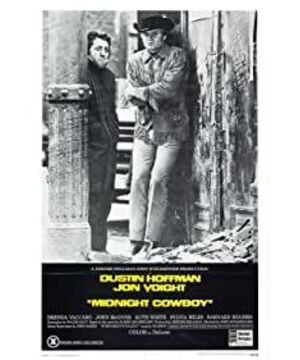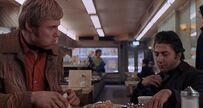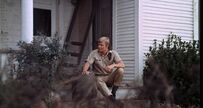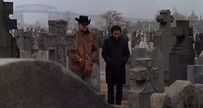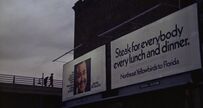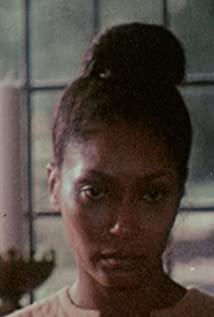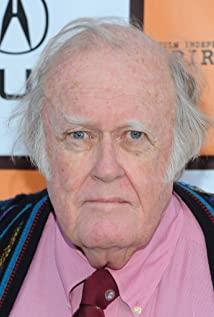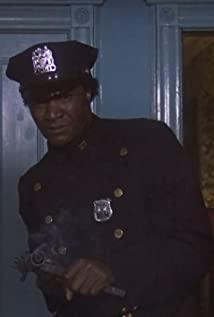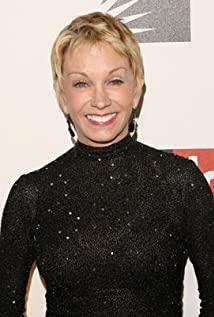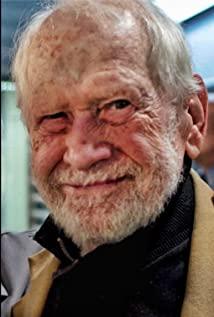Before entering the specific content, there are a few more understandings about the film that must be the premise of our discussion:
First, is the relationship between the protagonist Joe buck and Ratso homosexual? I think it depends on how you define love and love. At least, there is no direct evidence in the film that they have feelings that go beyond friendship to the flesh. This can also be seen from the narrative tone. Of course, the understanding of this issue is not the focus of the discussion. It is just a premise. If you have too many children's shoes that cannot be extricated from your brain, if you have good English, you may wish to look at the official explanation of IMDB: http://www.imdb.com/title/tt0064665/ faq?ref_=tt_faq_1#.2.1.10
Second, the film begins with Joe’s grand dream of quitting as a restaurant worker and bravely breaking into New York to become a cowboy , but why he will start with "this promising career" "There is no explanation for the goal. Thinking about it carefully, this is actually a bit unreasonable, and it's not too "American dream." Some people think that this is a natural reflection of the anxiety of the times in the new Hollywood movies, but no matter how liberating and absurd the times are, we always need a source explanation. Regarding this, the director chose the flashback technique to give us a vague explanation.
This is also the reason for the writing of this article. Once you understand the content of the flashback, you can understand the growth history of a Texas cowboy in this era of sexual liberation, anti-war, civil rights, and hippies, and you can also get a glimpse of the silhouette of the United States in that era.
========================== I am the dividing line of midnight ================== ==========
The first flashback:
Joe, who was still in his hometown in Texas, walked to a barber shop, and in his mind came up with his grandmother's haircut and massage when he was a child. Grandma's reaction is easily reminiscent of the "suffocation" in Sex, and finally she turned her head and kissed Joe very hard.
Analysis: This short flashback makes people have an unnatural association with the relationship between Joe and his grandmother.
Second flashback: The
sound flashes back. In the car, Joe thought of his grandmother's praise of him. She said that he would be the most beautiful cowboy in the cowboy team. Then the scene appeared, the grandmother hugging another man, and then cut to the scene of the grandmother saying goodbye to the young Joe, the grandmother said that she had found a "new lover" for herself, see you now.
Analysis: This paragraph once again implies that the grandmother's liking for him and her beautiful praise for him are somewhat similar to the infatuation with the "old love man". The moment of waving goodbye seems to be the end of this relationship.
People can't help but wonder, what is the relationship between little Joe and grandmother?
The third flashback:
It seems to be the girl's voice of the old girlfriend. The girl keeps saying that you are the only one, the only one who loves me, you are different from others. You are the best.
The screen cuts in at the same time. The girl is running in the golden grass, her eyes are shining, very beautiful. The girl was walking down the street, and a group of boys whistled and flirted. The girl ran and escaped in the desert, and a group of boys chased after her. The girl ran to Joe under the cloister and kissed her. The girl has sex with Joe.
Analysis: From this flashback we learned that Joe has a girl in his hometown in Texas who loves him very much. The girl is very beautiful, but it seems to have been coveted by a group of young cowboys. We will know from now on that this girl is called Annie (the graffiti on the previous wall also has foreshadowing).
The fourth flashback:
the voice of grandmother singing. It should be a lullaby, the lyrics reveal the love of grandmother for the child, can meet all needs.
The picture shows two women bringing the young Joe to the grandmother's house, and then handing Joe to the grandmother for foster care. There was love in the grandmother's eyes. Joe sleeps with his grandfather and grandmother. Grandfather dressed as a cowboy took Joe to the Rodeo cowboy show. Joe was swinging, and grandmother looked at him with a smile in the rocking chair. The grandmother kissed the bare Joe in her arms.
Analysis: Who are the two women? Why did you foster Joe at your grandmother's house? There is no clear explanation. We only know that the young Joe spent a long time with his grandparents. The image of his grandfather flashed by, laying the foundation for his future cowboy style, but this alone also meant the absence of his father. So Joe has always been incomplete in masculinity.
At the same time, we also learned that Joe was mainly raised by his grandmother when he was a child. Grandma loves him very much, but what kind of love is this love?
The fifth flashback:
Joe was tricked into meeting with a perverted believer. The abnormal man opened the toilet door, and one day the main image appeared. The perverted man asked Joe to kneel down with him and pray together (whether this is a new way of foreplay or purely religious fanaticism, I am not sure yet). The scene cuts back to the part where Joe was baptized when he was young. The grandmother and boyfriend were chanting the scriptures, and the priest put him in the water to be baptized. The lens gives people a sense of suffocation and depression.
Analysis: While this episode explains Joe's being deceived, it also implies Joe's fear of religious repression in his childhood. At the moment when he seized the door, he lifted a flag that read God is love, from which he could see that the object of this fear was precisely the kind of overwhelming, God-like love that could not be violated.
From this we probably know that the grandmother who loves Joe very much is like a god, and to a certain extent Joe can't breathe. This does not seem to be healthy love, and it further suppresses his masculinity, leading to his dependence on older women and his inferiority in the face of young girls.
The sixth flashback: The
young Joe smashed the mirror on the wall with something. The grandmother screamed "Stop it" behind her. The picture corresponds to the moment when Joe went to the bar to find clues to Ratso, but was rejected and wanted to smash the bottle.
Analysis: smashing a mirror is an act of resistance. He tried to resist his grandmother's overwhelming love. The way to resist is to compete, fight, and chase girls like normal boys. This leads to the protagonist Annie who flashed back later.
Seventh flashback:
Joe watching TV. Old women appeared on TV dressed up like children. The scene cuts back to childhood. The woman on TV said that women without children are lonely. The grandmother's voice entered, gave him money, blew him a kiss, and then went out. The picture advances to a portrait of Jesus shepherding a sheep (OMG Jesus also holds a lamb in his arms). TV voice-over: It's disgusting to dress up a puppy like a child. Constant laughter.
Analysis: This flashback is relatively clear. The lines explained a large part of the meaning. Joe is to his grandmother, what the puppy is to an old woman, it is an object to soothe loneliness (especially the grandmother always gives him money and food, which is a wonderful correspondence with the paying women in the movie). A loving Jesus is like a loving grandmother, but suddenly, Joe feels that being the lamb in Jesus' arms and the puppy in his daughter's arms is quite a sick thing. The ridicule one after another showed the humiliation of this incident, which was always a shadow in his heart.
Joe began to see his current situation clearly. The masculinity in his heart resurrected, trying to break through the prison set by his childhood life. He wants to grow up and become a real man, not a pet that is spoiled (castrated).
The eighth flashback: When a
small-eyed prostitute gave Joe a blowjob in the movie theater, a scene of Joe and his old girlfriend kissing and making love appeared. A group of hooligans laughed at the side and said, Kissing Crazy Annie, you better drink a whole damn drugstore.
It can be seen that the name of the old girlfriend is Annie. Annie walked through the aisle of the cinema, and a few cowboys followed. In the picture of Annie with a XXOO man in a plaid shirt, Annie has no expression on her face and is still. Annie and Joe have sex, and both of them are very engaged.
Analysis: This paragraph is the key to revealing Annie's identity. Her nickname is Crazy Annie. Guess is a girl with a slightly low IQ. In our country’s rural novels, we can also see that a crazy girl often becomes a natural object of sexual assault. This can explain why many cowboys chased Annie in the previous scenes. Someone succeeded in taking her. But Annie's favorite seems to be Joe.
By interacting with Annie, Joe is trying to get rid of the influence of his grandmother and build confidence. You are the best. You are the only one. It's also the narration that repeats throughout the film.
The ninth segment flashback:
This is a fairly long montage, and it is also the most important segment of the film. Dreams and memories are crumpled together, worthy of careful analysis by the viewer. The following is a review of this large clip.
Color: Joe and Annie have sex. Annie asked, do you love me?
Black and white: Joe and Annie have sex in the car, lightning and thunder. Annie said, you are the only one. ——Grandma enters the room and turns on the lights.
Many young cowboys spotted them with a flashlight, opened the car door, and dragged them out of the car. Annie, who ran away naked, was caught back. Joe was pressed on the front cover of the car. ——Grandma slaps Joe on the ass.
Annie was raped. Joe's legs were broken, and everyone violently attacked him (sodomize). ——Grandma gave Joe an enema (insertion).
The windshield was shattered. Annie yelled to stop. Joe's struggling face. ——Grandma smiled and stuffed a fruit into her mouth.
The police came with a torch, and Ratso was also in it. Joe was forced to the barbed wire fence. Annie was taken away by the police and at the same time accused Joe to be that person, the only one. Ratso sneered.
The big iron ball smashed over. Joe was hit on the wire fence. The building collapsed.
The X sign flashed.
Joe was trapped inside the wire fence, and Annie's sluggish face was outside the net. Annie's voice sounded, he was the one, the only one. Ratso's gloomy face in the light of the match.
Color: A picture of Ratso sleeping.
Black and white: The strange looking Annie, the person holding the broken beer bottle, and the Joe chasing the car in the rear window of the car-the three sets of pictures alternately appear repeatedly. Finally, the police car carrying Annie drove to New York. Ratso poked at herself with a broken beer bottle. The X sign flashed.
Wake up from dream.
Analysis: It's hard to tell which of this dream is true. But what is certain is that the pictures involving beer bottles, Ratso, and the X logo are all fake. They are a dreamlike representation of the day-to-day events, but they hint at Joe’s repressed desire for confrontation, precautions against Ratso, and Potential insecurity. According to the plot implied by the previous pictures, both Joe and Annie were raped, and Annie was even sent away by the police (into a mental hospital?). However, the true and false of this episode is not the point. The emotions hidden behind the dream are the key to cracking Joe's heart knot. Roughly apply the principles of Interpretation of Dreams of Fukuoka, and analyze it as follows-
Joe has always been afraid of being discovered when he gets along well with the Mad Girl. He was afraid of being found out of his incompetence, so he could only rely on a mad girl to cover it up. In such anxiousness, he carefully protected his inferiority complex. This can also explain that Joe, who has just arrived in New York, has a kind of self-confidence that is almost exaggerated, and the two are actually two sides of one.
Combining the above analysis, the truth may be: Joe in the rural period may not be as cute as he advertised. He has been struggling to get rid of the doted and suppressed self and self-confidence, and with the affirmation of the crazy girl, he decided to leave the east to seek growth.
(Joe also said when he quarreled with Ratso, women love me very much, such as Crazy Annie. I can only cite such an example in such a long time. It seems to be a self-confidence that I can barely support) The
tenth flashback:
Just a shot. Joe, wearing a military uniform, sat in front of the abandoned house steps of his grandmother's house with a dazed expression on his face.
Before this flashback, Joe watched Ratso's father with Ratso. Joe said that his grandmother didn't let her go until she died.
Analysis: The grandmother who once loved him died. The mad girl was also sent away. A person unaccompanied in New York, watching Ratso mutter to his father's tombstone, what I see is the loneliness of everyone growing up.
==========================I am the separation line of Cowherd ================= ===========
At this point, we can already draw a basic fact about the character's history. Because the above has been tirelessly analyzing the purpose of each flashback, I won't repeat it here. It is possible to sum up the life trajectory of the protagonist Joe Buck before leaving home in one sentence-from Sally (his grandmother's name) to Annie, Joe is constantly looking for the direction of self-recognition in the relationship between different female characters.
As for the New York timeline shown in the feature film, Joe continues to move along this timeline. Through the failed experience of getting along with Ratso and pimping, he truly understands love and the process of life.
In this sense, "Midnight Cowboy" is a growth narrative with relatively complete clues and delicate psychological portrayal.
On the bus where Ratso died at the end, Joe's final monologue (actually for R) tells us that he has completed a stage of growth. The bright Miami sun shines on the road outside the window, and also on Ratso's lifeless face. With the passing of several important people in Cowboy's life, the growing Joe has just walked out of the dark slit.
PS: Actually the lens language of this film is quite interesting. The extensive use of performance montage is not limited to flashbacks. It also includes a large section of Joe taking a list to solicit customers while Ratso is across the street from YY, and Joe witnessing a small mouse while eating. The perverted mother and child rubbing back and forth, and so on, the meaning behind them is very cheesy. Due to space limitations, I will not analyze them one by one here. Interested friends can go down and pull a few more times, a good film is worth pondering over and over again.
View more about Midnight Cowboy reviews


